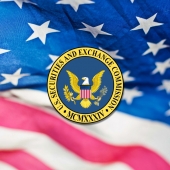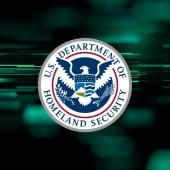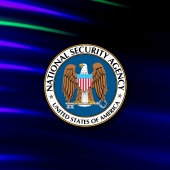-
Costa Rica declares national emergency after Conti ransomware attacks
The Costa Rican President Rodrigo Chaves has declared a national emergency following cyber attacks from Conti ransomware group. BleepingComputer also observed Conti published most of the 672 GB dump that appears to contain data belonging to the Costa Rican government agencies.
- May 09, 2022
- 03:53 AM
 0
0
-
White House: Prepare for cryptography-cracking quantum computers
President Joe Biden signed a national security memorandum (NSM) on Thursday asking government agencies to implement a set of measures that would mitigate risks posed by quantum computers to US national cyber security.
- May 05, 2022
- 04:01 PM
 0
0
-
'Hack DHS' bug hunters find 122 security flaws in DHS systems
The Department of Homeland Security (DHS) today revealed that bug bounty hunters enrolled in its 'Hack DHS' bug bounty program have found 122 security vulnerabilities in external DHS systems, 27 of them rated critical severity.
- April 22, 2022
- 04:05 PM
 0
0
-
US says Kaspersky poses unacceptable risk to national security
The Federal Communications Commission (FCC) added Russian cybersecurity firm Kaspersky to its Covered List, saying it poses unacceptable risks to U.S. national security.
- March 25, 2022
- 05:17 PM
 7
7
-
US charges 4 Russian govt employees with critical infrastructure hacks
The U.S. has indicted four Russian government employees for their involvement in hacking campaigns targeting hundreds of companies and organizations from the global energy sector between 2012 and 2018.
- March 24, 2022
- 05:57 PM
 2
2
-
Google: Chinese state hackers target Ukraine’s government
Google's Threat Analysis Group (TAG) says the Chinese People's Liberation Army (PLA) and other Chinese intelligence agencies are trying to get more info on the ongoing Russian war in Ukraine.
- March 18, 2022
- 09:58 AM
 0
0
-
SEC wants public companies to report breaches within four days
The US Securities and Exchange Commission (SEC) has proposed rule amendments to require publicly traded companies to report data breaches and other cybersecurity incidents within four days after they're determined as being a material incident (one that shareholders would likely consider important).
- March 10, 2022
- 01:03 PM
 2
2
-
US Treasury: Russia may bypass sanctions using ransomware payments
The Treasury Department's Financial Crimes Enforcement Network (FinCEN) warned U.S. financial institutions this week to keep an eye out for attempts to evade sanctions and US-imposed restrictions following Russia's invasion of Ukraine.
- March 09, 2022
- 11:41 AM
 0
0
-
Russian government sites hacked in supply chain attack
Russia says some of its federal agencies' websites were compromised on Tuesday after unknown attackers hacked the stats widget used to track the number of visitors by multiple government agencies.
- March 09, 2022
- 09:52 AM
 0
0
-
Google: Chinese hackers target Gmail users affiliated with US govt
Google's Threat Analysis Group has warned multiple Gmail users that they were targeted in phishing attacks conducted by a Chinese-backed hacking group tracked as APT31.
- March 08, 2022
- 11:58 AM
 1
1
-
FBI: Govt officials impersonated in widespread extortion schemes
Scammers are impersonating government officials and law enforcement in active and rampant extortion schemes targeting Americans' money or personally identifiable information (PII).
- March 07, 2022
- 12:47 PM
 0
0
-
Ukraine says local govt sites hacked to push fake capitulation news
The Security Service of Ukraine (SSU) said today "enemy" hackers are using compromised local government and regional authorities' websites to push rumors that Ukraine surrendered and signed a peace treaty with Russia.
- March 03, 2022
- 01:45 PM
 0
0
-
White House wants US govt to use a Zero Trust security model
A newly released Federal strategy wants the US government to adopt a "zero trust" security model within the next two years to defend against current threats and boost cybersecurity defenses across federal agencies.
- January 26, 2022
- 11:00 AM
 0
0
-
Canada's foreign affairs ministry hacked, some services down
The Canadian government department for foreign and consular relations, Global Affairs Canada was hit by a cyberattack last week. While critical services remain accessible, access to some online services is currently not available, as government systems continue to recover from the attack.
- January 25, 2022
- 01:38 AM
 0
0
-
Biden signs memo to boost US national security systems’ defenses
President Joe Biden signed a national security memorandum (NSM) on Wednesday to increase the security of national security systems part of critical US government networks used in military and intelligence activities when storing or transferring classified info.
- January 20, 2022
- 08:57 AM
 0
0
-
Former DHS official charged with stealing govt employees' PII
A former Department of Homeland Security acting inspector general pleaded guilty today to stealing confidential and proprietary software and sensitive databases from the US government containing employees' personal identifying information (PII).
- January 14, 2022
- 03:22 PM
 0
0
-
Multiple Ukrainian government websites hacked and defaced
At least 15 websites belonging to various Ukrainian public institutions were compromised, defaced, and subsequently taken offline.
- January 14, 2022
- 11:11 AM
 0
0
-
Fujitsu pins Japanese govt data breach on stolen ProjectWEB accounts
Fujitsu says the attackers behind the May data breach used a vulnerability in the company's ProjectWEB information-sharing tool to steal accounts from legitimate users and access proprietary data belonging to multiple Japanese government agencies.
- December 09, 2021
- 07:47 AM
 0
0
-
Governments worldwide to crack down on ransomware payment channels
Senior officials from 31 countries and the European Union said that their governments would take action to disrupt the cryptocurrency payment channels used by ransomware gangs to finance their operations.
- October 15, 2021
- 05:13 AM
 0
0
-
NSA warns of wildcard certificate risks, provides mitigations
The U.S. National Security Agency (NSA) is warning of the dangers stemming from the use of broadly-scoped certificates to authenticate multiple servers in an organization. These include a recently disclosed ALPACA technique that could be used for various traffic redirect attacks.
- October 12, 2021
- 02:23 AM
 0
0























